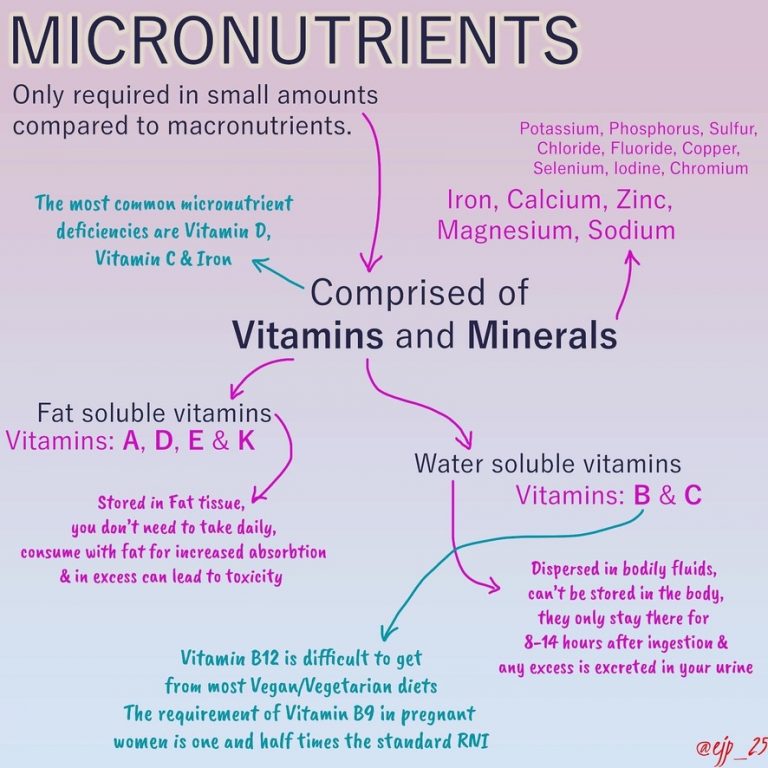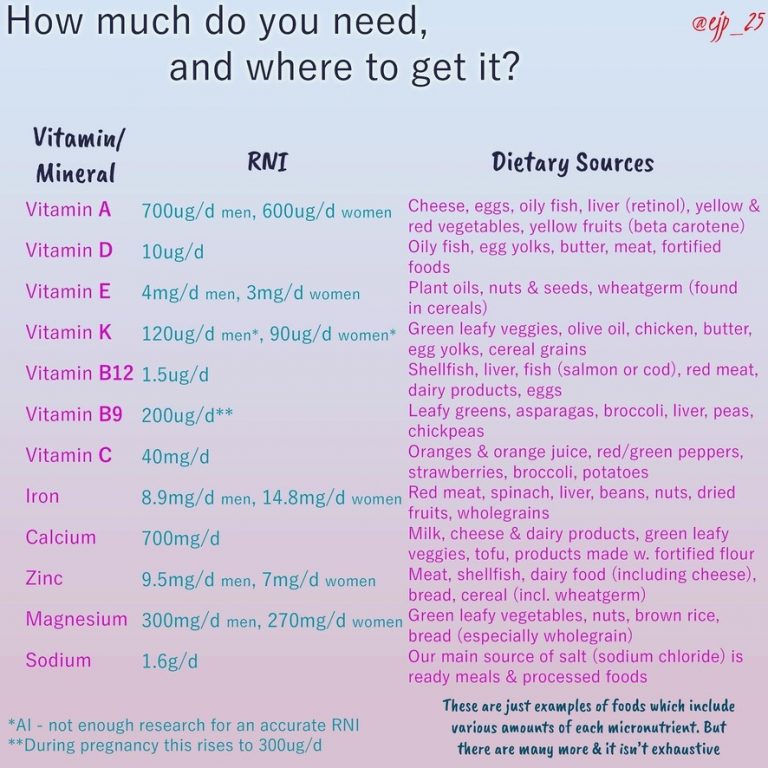Micros
We’ve covered Macros – so onto Micronutrients. These, as the name suggests, you require much less of (<10g) and there are two types; vitamins & minerals.
The RNI’s are the Reference Nutrient Intake. This is the amount needed for most people to avoid health problems from deficiencies. As with a lot in nutrition as we all each have our own individual differences the actual amount one person to another needs may vary a little. But these are guideline minimums. Some micros can cause toxicity if you have too much, so again to repeat so much of what I post – it’s all about balance!
What are they?
Below are some of the key functions of the main micronutrients:
Vitamin A: Important for your vision in dim light, has antioxidant properties, helps the growth of bones & maintains epithelial tissues.
B Vitamins: Helps the body convert food into fuel. The individual different B vitamins also help the body make hormones in the adrenal gland (B3), aid production of red blood cells & hormones (B5), make neurotransmitters & for brain development/function (B6), brain function & the production of DNA & red blood cells (B9) & for healthy nerve cells & the production of DNA & red blood cells (B12).
Vitamin C: An antioxidant, it helps immunity, aids the absorption of iron & the formation & maintenance of collagen (tendons).
Vitamin D: Covered in detail in my previous post. Very hard to get enough from your diet – you need sunlight, & in the winter months (Northern hemisphere) supplementation is likely needed.
Vitamin E: This acts as an antioxidant to prevent cell damage. Used in quite a lot of cosmetic products.
Vitamin K: Important in blood clotting & for bone formation. A deficiency in this can lead to severe bleeding.
Iron: Used to make haemoglobin & helps make red blood cells.
Calcium: Helps build bones & teeth, regulates muscle contraction & helps blood clot normally.
Zinc: For testosterone production (but Zinc will only increase this if you’re deficient), & makes enzymes for digestion.
Magnesium: Activates enzymes involved in protein synthesis, & regulates DNA.
Sodium: Acid-base balance, fluid balance & nerve function.
(Reposted from Instagram)



